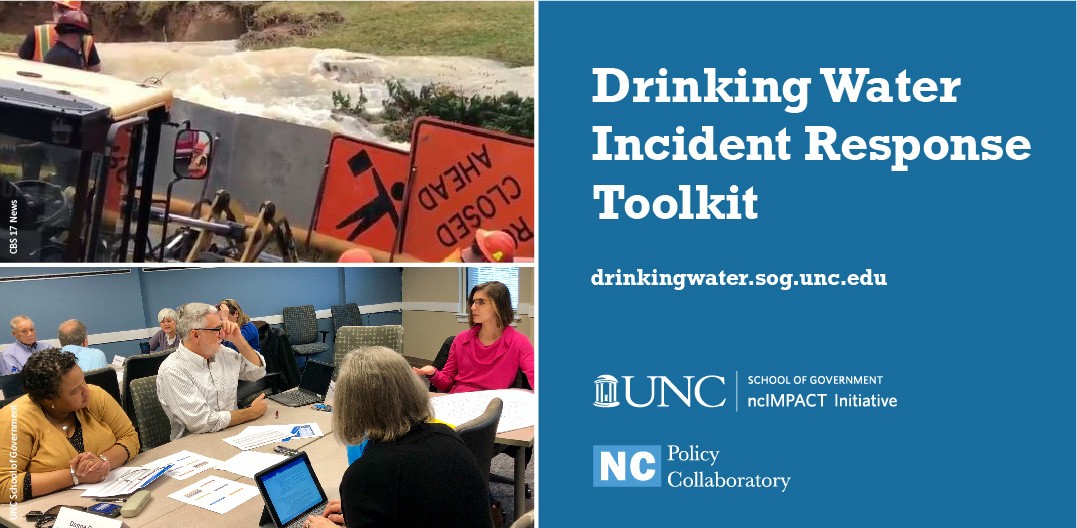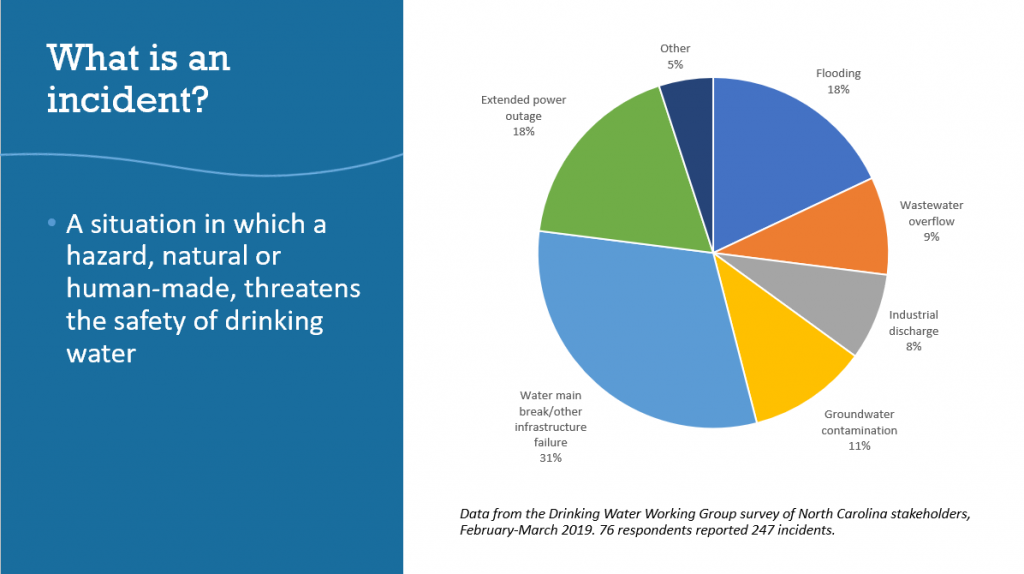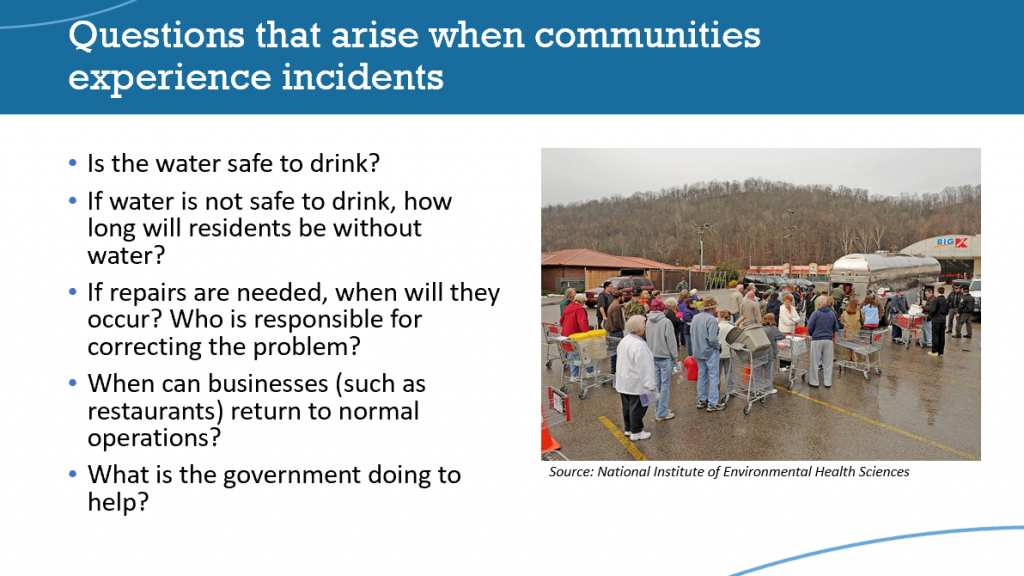Drinking Water Incident Response Toolkit Now Available Online
The Drinking Water Working Group guided development of this toolkit and resources to assist local governments when they must respond to drinking water incidents.

Co-Author: Maddie Shea
On July 16, 2019, the ncIMPACT Initiative launched the North Carolina Drinking Water Incident Response Toolkit online and presented a webinar introducing the toolkit. You can view a recording of the webinar online. The toolkit includes a guide for pre-incident planning, customizable tools for local governments, information on mutual aid, communication tools, essential information on drinking water and its regulation, and an appendix of additional resources.
Drinking water incidents such as floods, infrastructure failures, or contaminations may create real or perceived threats to the safety of drinking water across North Carolina. One highlight from the toolkit is the section on pre-incident planning. Any local community can be vulnerable to experiencing a drinking water incident. As such, this guide was developed to help local governments be as prepared as possible to respond if and when incidents occur. The guide is based on the principles that preparation is crucial, that it should be inclusive and collaborative, and that local issues and needs vary.
The guide:
- Highlights the need for a local champion,
- Provides example invitation lists and letters,
- Offers a sample tabletop exercise,
- Includes sample discussion questions, and
- Recommends a list of considerations for pre-incident planning meetings.

The ncIMPACT Initiative and the School of Government convened and staffed the Drinking Water Working Group with support from a grant from the North Carolina Policy Collaboratory. The Drinking Water Working Group guided development of this toolkit and resources to assist local governments when they must respond to drinking water incidents. We are grateful to the membership of the working group for their time and expertise.

The webinar was presented by:
- Jill Moore, Associate Professor, School of Government;
- Emily Gangi, Policy Engagement Director, ncIMPACT Initiative;
- Kathleen Gray, Director of Center for Public Engagement with Science, UNC Institute for the Environment;
- Shadi Eskaf, Senior Project Director, UNC Environmental Finance Center;
- Vicki Westbrook, Assistant Director of Water Management, City of Durham;
- Norma Houston, Lecturer, School of Government; and
- Maddie Shea, Program Fellow, ncIMPACT Initiative and MPA student.
For more information, please contact:
Jill Moore, Associate Professor, UNC School of Government moore@sog.unc.edu
Emily Williamson Gangi, Policy Engagement Director, ncIMPACT Initiative emily.gangi@unc.edu
